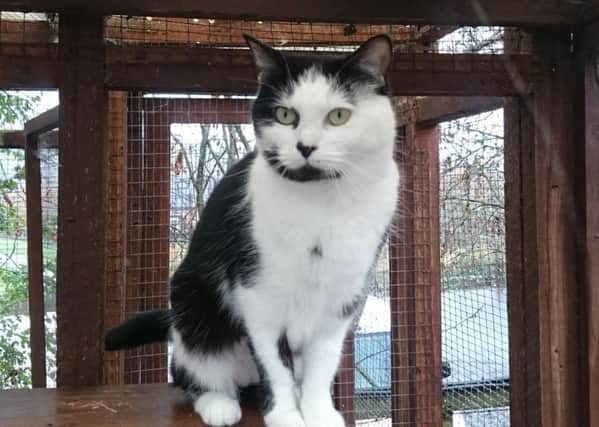Simon Cullum: Why pet bills are a price worth paying


When asked, owners sometimes struggle to remember when the most recent trip was; with the majority stating that the animal has been in good health so they did not see the need to make an appointment.
Obviously regular check ups to prevent disease, illness or pain developing should have been the order of the day.
Advertisement
Hide AdAdvertisement
Hide AdThe result is that when we take them to the vets for an initial health check there is often a list of issues that need to be resolved and we have to pick up the bill.
Some treatment is relatively inexpensive but others can be hugely complex and costly. Naturally we do everything we can to ensure that our animals receive the treatment they need and, since we exist purely on public donations, veterinary treatment represents one of the highest single costs that we incur.
Going hand-in-hand with irregular vet visits is a general lack of vaccination boosters given to pets of all types.
Dogs, cats and rabbits, we believe, need yearly boosters to maintain maximum immunity to the most common diseases and illnesses.
Advertisement
Hide AdAdvertisement
Hide AdBoosters are regularly reviewed and formulations changed to best defend the animal and as such failure to administer these can put pets at increased risk.
More often than not we do receive a vaccination document when an animal comes in to us, but all too often the boosters have either never been given or have lapsed. We then need to start from square one again with a full vaccination course; once again at quite some cost.
Most vet practices now offer health plans for a set amount and these can cover the main boosters, de flea and worming treatments as well as regular health checks.
These can be really useful to prevent your pet from becoming ill and also give an organized structure to the vet visits throughout the year.
Advertisement
Hide AdAdvertisement
Hide AdIn this way it is more likely that appointments will be made and kept and the health checks will hopefully identify any problems at an early stage.
Whilst these health plans are great for prevention of illness and disease they are not designed to cover the unexpected or the costs of any treatment that may be needed. As with human medicine the field of veterinary medicine is ever evolving; with more complex and costly procedures now being offered. If your dog snaps its cruciate ligament, for example, instead of the old system of wires and pulleys it is now possible to shape bone and insert metal wedges. This gives a much more satisfactory result and much reduced recovery period. Clearly such a procedure is the culmination of treatment starting with consultations, x rays etc and then the operation itself followed by regular check ups. This all comes at a price; and a high one at that!
Without an appropriate insurance policy the result of the costs for treatments can become prohibitive for many owners. A broken leg could result in a bill for £2k when all pre treatments, operations and after care are taken into consideration. There are organisations that can assist to some degree but the criteria for eligibility is strict and these are not the answer for most. An insurance policy that is tailored to your needs and the needs of your pet can be the solution. Clearly, as with all insurance policies it is a cost that you would hope not to have to draw on but you never know what is around the corner.
There are a huge number of providers and an even larger number of policy types. The most appropriate would depend on many factors and research into the best fit would obviously be beneficial.
Advertisement
Hide AdAdvertisement
Hide AdFinally, as an alternative, some owners prefer to set aside a fund for the unexpected costs of pet ownership. If this works for you then that is the most important thing. For us, the crucial factor is that some provision is made to cover for the unexpected. A combination of A regular health plan and effective insurance or fund should, in theory, result in a pet that could receive all the treatment it needs, which, after all, is what we would all want.